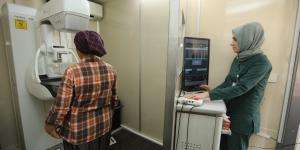Difference Between Bookkeeping and Accounting

As a financial auditor, you may work as an external or internal auditor. If you are an external auditor, you will most likely have a job at a public accounting firm, and you will need to have a CPA license, plus a college degree, and often a master’s degree. How much you make as a first-year accountant depends mainly on the specific career path you pursue. While accounting can be a lucrative long-term career, most accountants, unlike corporate attorneys or investment bankers, do not command huge salaries during the first few years. There are critical differences in job growth and salaries between the two.
- Department of Labor’s Occupational Handbook, some of the most in-demand accounting jobs include comptroller, accounting manager, senior tax accountant, and internal auditors.
- Young businesses often get away with doing their accounting and bookkeeping responsibilities themselves.
- It is related to summarizing the recorded transactions, interpreting them and then communicating their results.
This individual usually holds an accounting degree and is registered as a certified public accountant (CPA). To use that title, CPAs must pass the CPA exam—which is a highly valued credential in the accounting industry. Accounting is a high-level process that uses financial data compiled by a bookkeeper or business owner to produce financial models. As you’re planning your budget for the following year, your accountant will be the one who can provide analysis and suggestions to ensure your company is in the best fiscal shape to succeed. And, of course, all companies need to file taxes, which can become extremely complicated as your business grows. A trusted accountant can help guide you through that process and help handle any audits that may arise.
Common Roles in Accounting
Essentially, bookkeeping means recording and tracking the financial aspects of the business in an organised way. It is essential for every healthy business, but is also useful for individuals and non-profit organisations. With proper bookkeeping, companies are able to track all information on its books to make key operating, investing, and financing decisions. Accurate bookkeeping is critical for business as it gives a piece of reliable information on the performance of a company. The most important focus of bookkeeping is to maintain an accurate record of all the monetary transactions of a business.

The U.S. Bureau of Labor Statistics states that those practicing bookkeeping should hold at least a high school diploma, but usually have postsecondary education. For the purpose of certification, they’re mostly required to have at least 2 years of job experience. Bookkeepers provide essential insight into the financials of the company. They make sure that all financial operations are run smoothly and recorded regularly, and ensure that tax season isn’t stressful. An accountant typically has a degree and relevant work experience, however, there is no formal certification process for becoming an accountant. For instance, a bookkeeper might recommend the software for a double entry system of accounting, but the accountant would approve it.
Bookkeeping
Understand the distinction to analyze your small business finances more effectively. If you don’t have a financial recording and reporting system in place but have a firm grasp on how you’ll be spending money, you need a bookkeeper. However, if you want someone who can analyze your finances and provide advice, you’ll need an accountant.
Their job is to advocate and assist taxpayers when they have issues with the Internal Revenue Service. To become one, you have to either have worked at the IRS or pass an EA examination. The Ascent is a Motley Fool service that rates and reviews essential products for your everyday money matters. We’re firm believers in the Golden Rule, which is why editorial opinions are ours alone and have not been previously reviewed, approved, or endorsed by included advertisers. Editorial content from The Ascent is separate from The Motley Fool editorial content and is created by a different analyst team. Whether you sell baseball cards, baseballs, or tickets to a baseball game, your business still needs a bookkeeper or an accountant, or ideally, both.
Accounting software
They may even report to an accountant or certified financial planner or tax expert. When choosing where you want to take your career, you’ll need to know the difference between bookkeeping and accounting to find out which is right for you. Both bookkeeping and accounting are used interchangeably in the financial world, however, there is a notable difference between bookkeeping and accounting. Bookkeeping is a part of accounting whereas accounting itself is a wider concept.
- In this article, you will learn the differences between bookkeeping and accounting, as well as instances in which each member of your financial team is necessary.
- These include investors, creditors, management, revenue services and regulators.
- Bookkeepers can help organize your day-to-day finances, such as your daily sales, expenses, and even payroll.
- We’ve listed some of the key differences when it comes to the requirements and job market for each.
- Many small business owners attempt to save money by performing the recordkeeping duties of a bookkeeper themselves with the help of automated software, such as Intuit or Quickbooks.
- This method doesn’t record invoices or your company’s outstanding bills until they’ve been paid.
Growth for accountants and auditors is expected to continue for the next several years. The Bureau of Labor Statistics (BLS) expects 6% job growth in this field from 2021 to 2031. In either case, familiarizing yourself with bookkeeping terms and accounting basics can certainly go a long way toward making the process easier. These external reports must be prepared in accordance with generally accepted accounting principles. Bookkeeping does not depict the operating results of a business, whereas accounting indicates the operating results of a business. Bookkeeping is said to be the basis of accounting, whereas accounting forms a part of the broader scope in finance.
However, it can be difficult to catch up if you fall behind on reconciling transactions or tracking unpaid invoices. Regardless of your small business’s complexity, bookkeeping will still take time out of your week, so be sure you have the resources before committing to handling it yourself. This means recording transactions and saving bills, invoices and receipts so you have all the data you need to run reports. Accounting software makes it easy to store these documents and reference them in case of an accounting error or audit. You can become a bookkeeper right out of high school if you prove you are good with numbers and have strong attention to detail.
What are your bookkeeping and accounting options?
We’ve listed some of the key differences when it comes to the requirements and job market for each. There’s a place for both bookkeeping and accounting in your small business, and as a small business owner, you’ll likely be called upon to be both at one time or another. While accounting software certainly makes the bookkeeping process a lot easier, it requires a different set of skills and knowledge to handle accounting for your business.
Knowing the differences between the two can help people find their niche in the industry and can give guidance to companies on who to hire for their needs. Bookkeeping focuses on the proper recording of financial transactions for your business. Usually, your bookkeeper would use double-entry accounting to record all your financial transactions. Double-entry accounting means that for every debit entry you make, a corresponding credit entry must be made.
What Is Bookkeeping?
When deciding whether you should hire an accountant vs a bookkeeper, the answer will depend on what kind of help your business needs. Goodwill is a very complicated concept that typically applies in acquisitions. It accounts for a purchase price that is higher than the fair net value plus the company’s assets put together. Essentially, it accounts for brand value, market share, customer base, and all other intangible bookkeeping for construction companies assets that may make a company attractive to a potential purchaser. There is also ample opportunity for on-the-job training, apprenticeships, and post-secondary coursework that can help someone become a skilled bookkeeper. With the help of an accountant, you may be able to identify and navigate tasks including strategic tax planning, acquiring assets, calculating growth, and analyzing investment opportunities.
Careless mistakes that seem inconsequential at the time can lead to bigger, costlier, more time-consuming problems down the road. Rarely does a bookkeeper work on one big project for an eight-hour shift; instead, a typical workday involves juggling five or six smaller jobs. Nearly all bookkeeping is done using computerized accounting software and programs, so bookkeepers should be comfortable learning new technology if not proficient in it. However, bookkeeping and accounting clerk jobs are expected to decline, with the BLS projecting a 5% fall in jobs over the same period.




































